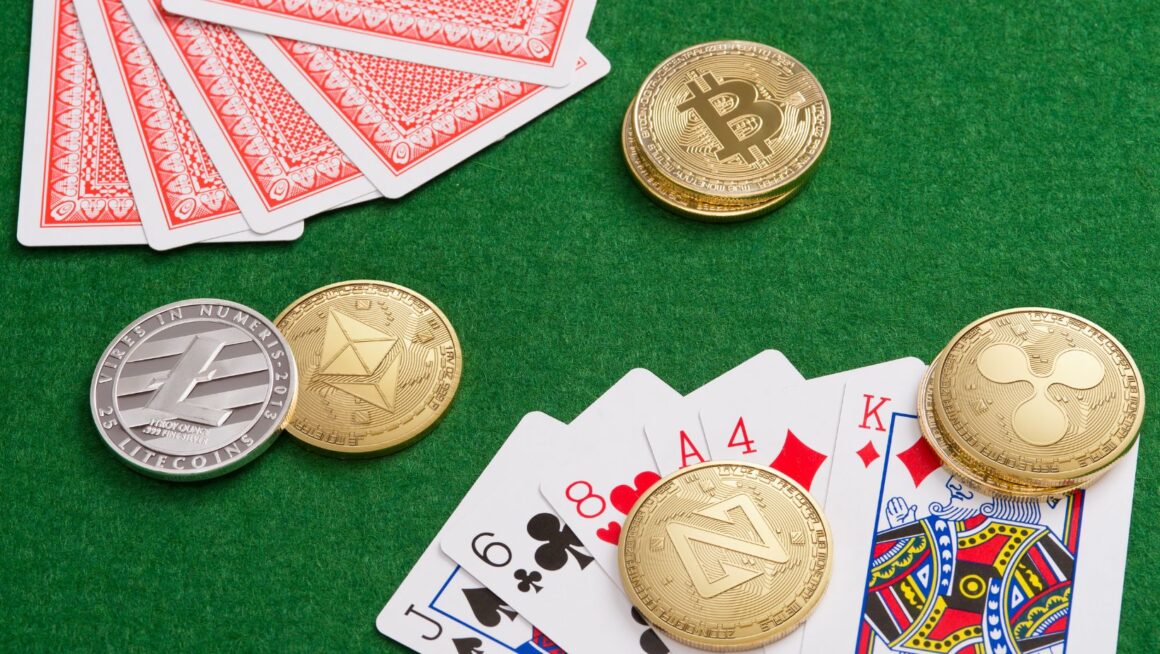Gaming remains one of the most popular pastimes for people of all ages. Therefore, it’s no surprise that gaming is one industry that cryptocurrency wishes to penetrate.
In recent times, we’ve seen new trends in gaming on the blockchain, and in this piece, we look to shine a light on them.
Brief Overview Of Blockchain Gaming
Crypto gaming involves playing games on a blockchain. A blockchain is a decentralized digital ledger stored across a network of computers. For a record to be added, the whole network must agree to it, making it immutable and verifiable.
Cryptocurrency is the reward for how blockchain is secured. This allows for a play-to-earn model (P2E) in gaming. To earn some crypto simply complete tasks, trade items, or battle against opponents.
The more users play a game, the higher the price of the token. Normally, it’s used as the in-game currency, so it allows you to buy skins and virtual assets. The cryptocurrency is also traded on exchanges so the price can also move for technical or fundamental reasons.
One more big aspect of crypto gaming is non-fungible tokens or NFTs. An NFT is a unique digital asset that represents ownership on the blockchain. This means you can uniquely own singular things within games such as skins or virtual land.
Popular Crypto Games
In the crypto space, you can play a wide range of games on the blockchain from strategy to first-person shooters. Besides games, it’s also possible to wager crypto on the latest sports events like the Premier League, NBA, and the NFL.
There are hundreds of crypto betting sites to choose from, but you should check out comparison sites before making a choice. These sites provide you with impartial reviews on each sportsbook and even check for all the latest welcome bonuses.

If you are looking for examples of P2E games, then the most popular ones are Axie Infinity, Gods Unchained, and Decentraland. In each of these, the players’ community is strong, and big brands such as Adidas and Atari sponsor the games.
Play-to-Earn (P2E)
As we’ve previously touched upon, Play-to-Earn (P2E) is a big part of crypto gaming. It’s completely revolutionary because it rewards gamers for playing games rather than charging them like traditional games on consoles and PCs.
The way you earn cryptocurrency varies on the game you’re playing. For instance, in the popular crypto game, Decentraland, you earn the native currency ($MANA) by renting out property in the virtual world. However, if you’re playing Axie Infinity, then you earn Smooth Love Potion (SLP) by completing missions or winning battles.
The best thing is that with the cryptocurrency you’ve earned, you can trade it on exchanges for real money. This can potentially be very lucrative as if you’ve played a game early and stacked plenty of coins, they might increase in value at a later date.
Non-Fungible Tokens (NFT)
Back in 2021, non-fungible tokens entered the mainstream mainly through digital art. The artist Beeple made the headlines selling his NFT at Christie’s in London for a staggering $69m!

Since then, NFTs have grown in the crypto-gaming space as a way for users to own a piece of content. This can be anything when playing games online from virtual real estate to skins. These can then be traded on an exchange.
NFTs are the first step in revolutionizing digital assets because they empower creators. With blockchain technology, it’s simple to prove the real owner, so if you’re playing a first-person shooter and you own a specific gun, it cannot be copied.
The Future
Going forward, the crypto industry must work hand in hand with already-established gaming companies if crypto gaming is to enter the mainstream. The good news is that big companies such as Ubisoft and Square Enix are actively looking into blockchain technology.
In addition, one major issue is that blockchain technology is slow and resigned to specific protocols. For example, a crypto game using Ethereum cannot trade assets with another one using Solana. Therefore, cross-platform opportunities are needed in the future.
Lastly, with virtual and augmented reality continuing to develop, it will be interesting to see crypto gaming’s relationship with them. Will blockchain be used in virtual worlds or will another technology take its place? Only time will tell.
Market Maestro: With an uncanny ability to predict the ups and downs of the crypto market, Jordan is our go-to for all things investment. Just don’t ask him for lottery numbers; he says it’s a different kind of prediction magic.



